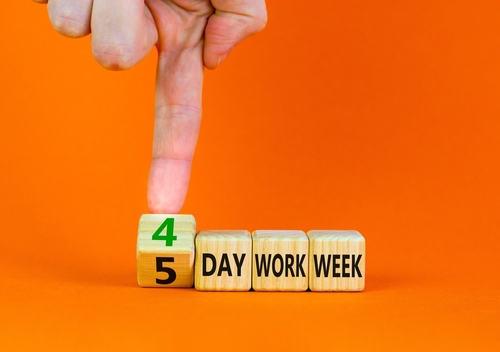While there has been considerable grassroots support for the concept of a 4-day workweek, employers—those with the ability to make such proposals a reality—haven’t been quite as energized by the idea. After all, the current labor market, particularly in the United States, has made it difficult for many employers to find workers. But some business leaders argue that the diminishing returns and counterproductivity of working too many hours makes it worth taking a closer look at a 4-day workweek.
Burnout on the Rise
In an article for Fortune, Mike Milello, cofounder of Wanderlust, a technology company focused on outdoor activities, explains how he noticed his employees seemed to be more drained and burnt out while working through the COVID-19 pandemic. At one point, Milello says he realized that his and his staff’s brains were constantly active and engaged with work; their work life had completely seeped into their personal lives. Milello knew he needed to make a change.
“I wrote my team the next day to tell them that we were moving to a four-day workweek,” Milello writes. “At the time, I thought it would be temporary, a summertime reprieve during a global crisis. I figured we could take the hit to productivity for the sake of our team’s sanity.”
But Milello didn’t end up switching back to the traditional 5-day schedule. Instead, he noticed some surprising and positive company developments that seemed to coincide with the shorter time commitment.
Benefits from a Shortened Work Week
“The company grew,” Milello shares. “Not only did moving to a four-day workweek not degrade our productivity, but the months following the shift were among the most productive in our history. A year after moving to a four-day workweek, we had grown annual recurring revenue by nearly 100%.”
One of the arguments to be made for a shorter workweek that may help explain Milello’s experience is that humans simply can’t work nonstop and maintain the same level of productivity. This doesn’t just mean that the 60th hour of work in a given week is likely less productive than the 10th hour; it also means that employees make more mistakes after working long hours, which might make it necessary to actually do more work to make up for errors or poor decision-making.
Milello’s experience with a shorter workweek at Wanderlust may not be predictive of what all organizations can expect. Nevertheless, it does provide one positive data point with strong anecdotal evidence that such policies can be and have been successful.
What impact might a 4-day workweek have on your organization, its productivity, and its potential to attract and retain top talent?
Lin Grensing-Pophal is a Contributing Editor at HR Daily Advisor.

